The Same Word Used as Different Parts of Speech:
(1) About-
- Adverb- She is too tired to move about.
- Preposition- He knows nothing about me.
(2) Above-
- Noun- Rains come from above.
- Adjective- The above mistakes are very common.
- Adverb- Please look above.
- Preposition- His dealings are above dishonesty.
(3) Advance-
- Noun- An advance of five hundred rupees was given.
- Adjective- The advance money has been returned.
- Verb- Five hundred rupees were advanced as security.
(4) After-
- Adjective- All this is an after thought.
- Adverb- You left and he came soon after.
- Preposition- The policeman ran after the chief.
- Conjunction- I saw him after the class had been over.
(5) All-
- Noun- He lost his all for the sake of his beloved.
- Pronoun- All of us were present in the meeting.
- Adjective- All the boys were present in the meeting.
- Adverb- He was left all alone.
(6) Back-
- Noun- The heavy load broke his back.
- Adjective- He entered through the back door.
- Verb- Do not back out of your word.
- Adverb- Go back and never come again.
(7) Before-
- Adverb- I have not seen him before.
- Preposition- Will you go there before me?
- Conjunction- I will do it before I go.
(8) Better-
- Noun- Always have a regard for your betters.
- Verb- Better your handwriting.
- Adjective- This pen is better than that.
- Adverb- He sings better than I.
(9) Best-
- Noun- This is the singer’s best song.
- Adjective- He is the best boy in the class.
- Adverb- They have played their part best.
(10) Bite-
- Noun-The bite of a mad dog is dangerous.
- Verb- Barking dogs seldom bite.
(11) Book-
- Noun- The book is lying on the table.
- Verb- Get your seat booked in the train.
- Adjective- Don’t be a book-worm.
(12) But-
- Verb and Noun- But (Verb) me no buts (Noun).
- Pronoun- There was none but wept.
- Adverb- You are but a child.
- Preposition- All but Aditi were present.
- Conjunction- He ran but could not catch the train.
(13) Call-
- Noun- I am always at your beck and call.
- Verb- Call in the doctor.
- Adjective- A call bell is fitted to the gate.
(14) Close-
- Noun- At the close of the school, we played games.
- Verb- The school is closed today.
- Adjective- Menu is my close friend.
- Adverb- He sat close to me.
(15) Dead-
- Noun- The Hindus burn their dead.
- Adjective- I saw a dead body.
- Adverb- I am dead tired.
(16) Deep-
- Noun- Many a ship has sunk in the deep (sea).
- Adjective- It is a deep sea.
- Adverb- Go deep into the sea and you will find a gem.
(17) Down-
- Noun-The old man has seen many ups and downs in his life.
- Verb- Knock this naughty boy down.
- Adjective- Are you waiting for the down train?
- Adverb- Sit down please.
(18) Enough-
- Noun- Enough has already been done for you.
- Adjective- He has enough money in his pocket.
- Adverb- We have played enough.
(19) Even-
- Verb- First even the ground and then play.
- Adjective- Two and four are even numbers.
- Adverb- He did not even look at me.
(20) Evil-
- Noun- The evil that men do lives after them.
- Adjective- He has fallen on evil days (unlucky times).
(21) Except-
- Verb- The poor are excepted from this tax.
- Preposition- All except Ravi were present.
- Conjunction- I shall help you, except that I do not give you my word.
(22) Express-
- Noun- An express runs from Amritsar to Delhi.
- Verb- I have expressed my views.
- Adjective- I will catch the express train.
- Adverb- The letter was sent express.
(23) Fair-
- Noun- The fair is in full swing.
- Adjective- I need fair deal and no favour.
- Adverb- We should play fair.
(24) Fast-
- Noun- He keeps fast on every Sunday.
- Verb- I can fast for two days at a stretch.
- Adjective- He travelled by a fast train.
- Adverb- He ran fast and caught the train.
(25) Fine-
- Noun- I paid my fine.
- Verb– He is fined for his absence.
- Adjective- What a fine weather it is!
- Adverb- Please tune fine.
(26) Fire-
- Noun- There is no fire in the hearth.
- Verb- The gun was fired.
- Adjective- Did you enjoy the fire-works last night.
(27) Free-
- Verb- At last he freed himself from the cruel moneylender.
- Adjective- I have a free pass for the show.
- Adverb- The bird was set free.
(28) Good-
- Noun- Whatever God does, He does for our good.
- Adjective- He is a good boy.
- Adverb- The boy is doing good.
(29) Half-
- Noun- Never do things by halves.
- Adjective- Half a loaf is better than no bread.
- Adverb- Well begun is half done.
(30) House-
- Noun- I have no house to live in.
- Verb- The library was housed in an old building.
- Adjective- Mr. Ravi is a house-surgeon these days.
(31) Iron-
- Noun- Iron is a useful metal.
- Verb- Iron your clothes.
- Adjective- Sardar Patel was an iron man.
(32) Last-
- Noun- The patient is sure to breathe his last.
- Verb- The meeting will last for two hours.
- Adjective- This bank is on its last leg.
- Adverb- He came last of all.
(33) Light-
- Noun- There is no light in the hall.
- Verb- Please light the lamp.
- Adjective- Give only light food to the patient.
- Adverb- Light come, light go.
(34) Like-
- Noun- I do not know your likes and dislikes.
- Verb- I like this apple.
- Adjective- Like father, like son.
- Preposition- He works like a bee.
(35) Long-
- Noun- What is the long and short of this matter? (the sum and substance or the gist of this matter).
- Verb- I long to have a watch (desire strongly).
- Adjective- It is a long story.
- Adverb- May you live long.
(36) Make-
- Noun- Our master is absent today.
- Verb- I have mastered the situation of the city.
- Adjective- Here is a master-key.
(37) Master-
- Noun- Our master is absent today.
- Verb- I have mastered the situation of the city.
- Adjective- Here is a master-key.
(38) Much-
- Noun- Much has already been done in this respect
- Pronoun- Much of the work has already been done.
- Adjective- He has done much work today.
- Adverb- He has worked much today.
(39) Mean-
- Noun- What is the mean of ten and sixteen.
- Verb- What do you mean to say?
- Adjective- Is he not a mean fellow?
(40) Mine-
- Noun-There is a gold mine in Mysore.
- Pronoun- Mine is not a bad picture.
- Verb- Diamonds are mined in South Africa.
(41) Near-
- Verb- The tribesmen are nearing the city.
- Adjectives- He is my near relative.
- Adverb- Come near, please.
- Preposition- He lives near our house.
(42) Need-
- Noun- My need is greater than yours.
- Verb- He needs a pen.
- Adverb- He must needs be present (of necessity).
(43) Only-
- Adjective- This is the only washerman here.
- Adverb- He only sleeps and does nothing.
- Conjunction- You may do whatever you like, only do not come near me.
(44) Out-
- Noun- I do not know the ins and outs of this matter (details).
- Adjective- I have booked my luggage at the Railway out agency.
- Adverb- Come out, please.
- Preposition- Out of the frying pan, into the fire.
(45) Past-
- Noun- His past is not good. The past of our country was very very glorious.
- Adjective- Do you know his past history?
- Adverb- The soldiers marched past.
- Preposition- The old man is past eighty.
(46) Pen-
- Noun- The pen is mightier than the sword.
- Verb- I have penned a few line in reply (written).
- Adjectives- I have some pen friends in China. (who become friends through letters).
(47) Right-
- Noun- He has every right to do so.
- Verb- Every wrong should be righted.
- Adjective- This is my right arm.
- Adverb- He was right glad to see me.
(48) Round-
- Noun- The man-made moon has already made more than one hundred rounds of the earth.
- Verb- All the thieves have been rounded up by the police.
- Adjective- We sat at a round table.
- Adverb- With great difficulty I brought him round to my views.
- Preposition- The man-made moon went round the earth.
(49) Saddle-
- Noun- Put the saddle on the back of the horse.
- Verb- The horse is saddled; I am saddled with great responsibility.
(50) Save-
- Verb- He has saved a lot of money.
- Preposition- All save (except) Ravi were present.
(51) Set-
- Noun- You have a good tea-set.
- Verb- Please set right the office.
- Adjective- I went to him with a set (fixed) purpose.
(52) Short-
- Noun- The long and short of the matter is that I do not see eye to eye with you.
- Adjective- I know short hand.
- Adverb- We fell short of money.
(53) Since-
- Adverb- He left this place one week since (ago).
- Preposition- He has been here since last Tuesday.
- Conjunction- Since he is ill, he cannot attend the meeting.
(54) Slow-
- Verb- The train slows down as it reaches the platform.
- Adjective- Slow and steady wins the race.
- Adverb- In summer clocks generally go slow.
(55) Sound-
- Noun- I have heard the sound of the bugle.
- Verb- Please sound the bugle.
- Adjective- He has followed a sound policy.
- Adverb- I have reached home safe and sound.
(56) Spring-
- Noun- A spring has sprouted up in our neighbourhood.
- Verb- The dog sprang upon the table.
- Adjective- The spring water sometimes cures skin diseases.
(57) Still-
- Noun- He came in the still of night (silence).
- Verb- The presence of the Headmaster alone could still the angry students (quieten).
- Adjective- Still waters are very deep.
- Adverb- He is still here.
- Conjunction- He is dead tired, still he goes on walking.
(58) That-
- Pronoun- The picture that we saw was very interesting.
- Adjective- That boy is very naughty.
- Adverb- He can do that much work today.
- Conjunction- He said that he would do it.
(59) Than-
- Preposition- I have no other book than this.
- Conjunction- He is much stronger than I (am).
(60) Then-
- Noun- They have lived happily since then.
- Adjective- The then Viceroy was very noble.
- Adverb- I had gone out then.
- Conjunction- You do not act upon my advice, then how can I guide you?
(61) Till-
- Noun- A shopkeeper’s money box is called a till.
- Verb- The farmer is tilling the land.
- Preposition- He did not turn up till yesterday.
- Conjunction- I will wait here till he returns.
(62) Time-
- Noun- Time and tide waits for none.
- Verb- Time your watch to the clock tower.
- Adjective- Terrorists are planting time bombs.
- Adverb- Your debt is time barred now.
(63) Up-
- Noun- I have seen many ups and downs in life.
- Verb- Up, up with the patriots!
- Adjective- He travelled by the up train.
- Adverb- Wake him up, please.
(64) Wall-
- Noun- This wall is made of stone.
- Verb- The city has been walled to defend it properly.
- Adjective- This is a wall clock.
(65) Watch-
- Noun- This watch is of Swiss make; The guard is on the watch.
- Verb- I am watching your movements.
- Adjective- Have you a watch dog.
(66) Water-
- Noun- Water serves us in many ways.
- Verb- Water the plants, please.
- Adjective- The picture is drawn in water colour.
(67) Well-
- Noun- The deeper the well, the cooler the water.
- Verb- Tears welled up in the eyes of the old lady.
- Adjective- The well water is better than the spring water.
- Adverb- He always does well in the examination.
- Interjection- Well done!
(68) While-
- Noun- Let us wait for him for a while.
- Verb- Do not while away your time.
- Conjunction- I was sleeping, while he was busy in his work.
(69) Wrong-
- Noun- Right your wrongs.
- Verb- He has wronged me too much.
- Adjective- They adopted a wrong policy.

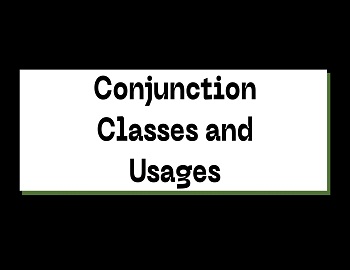
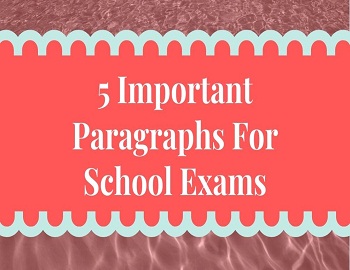
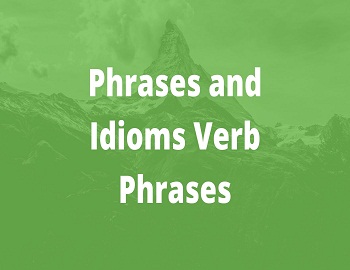
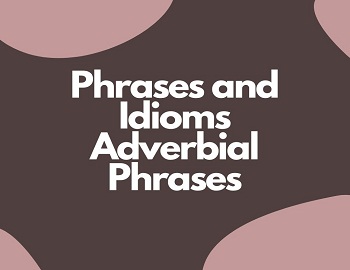
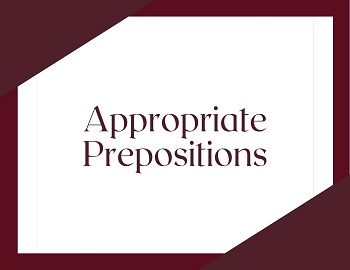
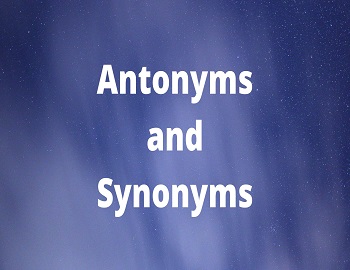


Comments (No)